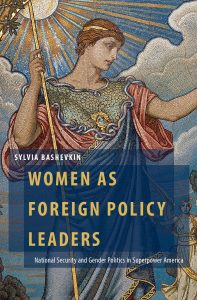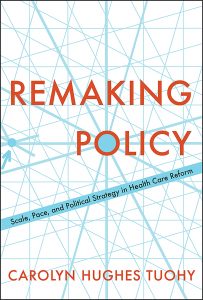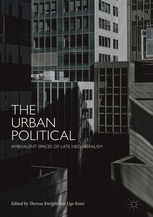
Wirtschaftsgeographie (Economic Geography)
This book systematically discusses classical and new theories of economic geography and invites the critical assessment of their empirical applicability. Based on the spatial disparities and inequalities in economic processes, the authors develop a relational economic geography that meets the challenges of a globalized world economy by integrating interdisciplinary theories.
The 4th edition has been completely revised, traditional concepts have been streamlined for better understanding, and newer approaches have been updated and expanded.
Illustrative case studies and over 100 graphics in 15 chapters support the lecture-accompanying self-study. A bachelor’s and master’s study book for students of geography, social sciences and economics as well as anyone interested in the relationship between space and economy.
This title is also available on various e-book platforms (Amazon, Libreka, Libri) as an e-pub version for mobile readers.

Business and Politics in India
Over the last few decades, politics in India has moved steadily in a pro-business direction. This shift has important implications for both government and citizens. In Business and Politics in India, leading scholars of Indian politics have gathered to offer an analytical synthesis of this vast topic. Collectively, they cover the many strategies that businesses have used to exert their newfound power in recent times and organize the book around a few central concerns. They first analyze the nature of business power and how it shapes political change in India. Second, they look at the consequences of business’ growing power on some important issue areas-labor, land, urban governance, and the media. Finally, they take account of regional variation and analyze state-business relations. This definitive account offers significant insights into how and why corporations have increased their power in contemporary Indian politics.

Judicial Independence in the Age of Democracy: Critical Perspectives from around the World
This collection of essays by leading scholars of constitutional law looks at a critical component of constitutional democracy–judicial independence–from an international comparative perspective. Peter H. Russell’s introduction outlines a general theory of judicial independence, while the contributors analyze a variety of regimes from the United States and Latin America to Russia and Eastern Europe, Western Europe and the United Kingdom, Australia, Israel, Japan, and South Africa. Russell’s conclusion compares these various regimes in light of his own analytical framework.

The Book of the City of Ladies and Other Writings
“Fresh, accurate, and engaging, this new translation of the Book of the City of Ladies helps us to understand what made Christine de Pizan so popular with her fifteenth-century contemporaries. The editors provide a rich historical and philosophical context that will be very useful to both students and scholars of the history of political ideas. The translations themselves gracefully navigate the fine line between accuracy and readability with considerable charm. Rounding out this portrait of the turmoil of fifteenth-century France, the volume is enriched by excerpts from other works, Christine’s Vision, the Book of the Body Politic, and the Lamentation on France’s Ills.”
—Kate Forhan, Emeritus, Siena College

Women as Foreign Policy Leaders: National Security and Gender Politics in Superpower America
What difference does gender make to foreign diplomacy? What do we know about women’s participation as decision-makers in international affairs? Is it fair to assume, as many observers do, that female elites will mirror the relatively pacifist preferences of women in the general public as well as the claims of progressive feminist movements? And, of particular importance to this book, what consequences follow from the appointment of “firsts” to these posts? Inspired by recent work in the field of feminist diplomatic history, this book offers the first comparative examination of women’s presence in senior national security positions in the United States executive branch.
Sylvia Bashevkin looks at four high-profile appointees in the United States since 1980: Jeane Kirkpatrick during the Reagan years, Madeleine Albright in the Clinton era, Condoleezza Rice during the George W. Bush presidency, and Hillary Rodham Clinton in the first Obama mandate. Bashevkin explores the extent to which each of these women was able to fully participate in a domain long dominated by men, focusing in particular on the extent to which each shaped foreign policy in meaningful ways. She looks particularly at two specific phenomena: first, the influence of female decision-makers, notably their ability to make measurable difference to the understanding and practice of national security policy; and second, leaders’ actions with respect to matters of war and women’s rights. The track records of these four women reveal not just a consistent willingness to pursue muscular, aggressive approaches to international relations, but also widely divergent views about feminism. Women as Foreign Policy Leaders shows how Kirkpatrick, Albright, Rice, and Clinton staked out their presence on the international scene and provided a crucial antidote to the silencing of women’s voices in global politics.

Remaking Policy: Scale, Pace, and Political Strategy in Health Care Reform
One of the most persistent puzzles in comparative public policy concerns the conditions under which discontinuous policy change occurs. In Remaking Policy, Carolyn Hughes Tuohy advances an ambitious new approach to understanding the relationship between political context and policy change.
Focusing on health care policy, Tuohy argues for a more nuanced conception of the dynamics of policy change, one that makes two key distinctions regarding the opportunities for change and the magnitude of such changes. Four possible strategies emerge: large-scale and fast-paced (“big bang”), large-scale and slow-paced (“blueprint”), small-scale and rapid (“mosaic”), and small-scale and gradual (“incremental”). As Tuohy demonstrates, these strategies are determined not by political and institutional conditions themselves, but by the ways in which political actors, individually and collectively, read those conditions to assess their prospects for success in the present and over time.
Drawing on interviews as well as primary and secondary accounts of ten health policy cases over seven decades (1945—2015) in the US, UK, the Netherlands, and Canada, Remaking Policy represents a major advance in understanding the scale and pace of change in health policy and beyond.

The Price of Prestige: Conspicuous Consumption in International Relations
If wars are costly and risky to both sides, why do they occur? Why engage in an arms race when it’s clear that increasing one’s own defense expenditures will only trigger a similar reaction by the other side, leaving both countries just as insecure—and considerably poorer? Just as people buy expensive things precisely because they are more expensive, because they offer the possibility of improved social status or prestige, so too do countries, argues Lilach Gilady.
In The Price of Prestige, Gilady shows how many seemingly wasteful government expenditures that appear to contradict the laws of demand actually follow the pattern for what are known as Veblen goods, or positional goods for which demand increases alongside price, even when cheaper substitutes are readily available. From flashy space programs to costly weapons systems a country does not need and cannot maintain to foreign aid programs that offer little benefit to recipients, these conspicuous and strategically timed expenditures are intended to instill awe in the observer through their wasteful might. And underestimating the important social role of excess has serious policy implications. Increasing the cost of war, for example, may not always be an effective tool for preventing it, Gilady argues, nor does decreasing the cost of weapons and other technologies of war necessarily increase the potential for conflict, as shown by the case of a cheap fighter plane whose price tag drove consumers away. In today’s changing world, where there are high levels of uncertainty about the distribution of power, Gilady also offers a valuable way to predict which countries are most likely to be concerned about their position and therefore adopt costly, excessive policies.

Dangerous Minds: Nietzsche, Heidegger, and the Return of the Far Right
Following the fall of the Berlin Wall and demise of the Soviet Union, prominent Western thinkers began to suggest that liberal democracy had triumphed decisively on the world stage. Having banished fascism in World War II, liberalism had now buried communism, and the result would be an end of major ideological conflicts, as liberal norms and institutions spread to every corner of the globe. With the Brexit vote in Great Britain, the resurgence of right-wing populist parties across the European continent, and the surprising ascent of Donald Trump to the American presidency, such hopes have begun to seem hopelessly naïve. The far right is back, and serious rethinking is in order.
In Dangerous Minds, Ronald Beiner traces the deepest philosophical roots of such right-wing ideologues as Richard Spencer, Aleksandr Dugin, and Steve Bannon, to the writings of Nietzsche and Heidegger—and specifically to the aspects of their thought that express revulsion for the liberal-democratic view of life. Beiner contends that Nietzsche’s hatred and critique of bourgeois, egalitarian societies has engendered new disciples on the populist right who threaten to overturn the modern liberal consensus. Heidegger, no less than Nietzsche, thoroughly rejected the moral and political values that arose during the Enlightenment and came to power in the wake of the French Revolution. Understanding Heideggerian dissatisfaction with modernity, and how it functions as a philosophical magnet for those most profoundly alienated from the reigning liberal-democratic order, Beiner argues, will give us insight into the recent and unexpected return of the far right.
Beiner does not deny that Nietzsche and Heidegger are important thinkers; nor does he seek to expel them from the history of philosophy. But he does advocate that we rigorously engage with their influential thought in light of current events—and he suggests that we place their severe critique of modern liberal ideals at the center of this engagement.

The Elgar Companion to Innovation and Knowledge Creation
This unique Companion provides a comprehensive overview and critical evaluation of existing conceptualizations and new developments in innovation research. It draws on multiple perspectives of innovation, knowledge and creativity from economics, geography, history, management, political science and sociology. The Companion brings together leading scholars to reflect upon innovation as a concept (Part I), innovation and institutions (Part II), innovation and creativity (Part III), innovation, networking and communities (Part IV), innovation in permanent spatial settings (Part V), innovation in temporary, virtual and open settings (Part VI), innovation, entrepreneurship and market making (Part VII), and the governance and management of innovation (Part VIII).

The Urban Political: Ambivalent Spaces of Late Neoliberalism
This book examines the political and economic trajectories of cities following the 2008 financial crisis. The authors claim that in this era—which they dub “late neoliberalism”—urban spaces, institutions, subjectivities, and organizational forms are undergoing processes of radical transformation and recomposition. The volume deftly argues that the urban political horizon of late neoliberalism is ambivalent; marked by many progressive mobilizations for equality and justice, but also by regressive forces of austerity, exploitation, and domination.